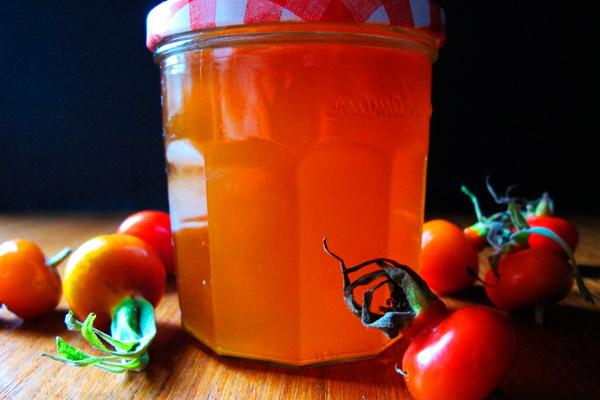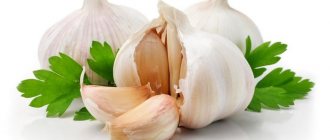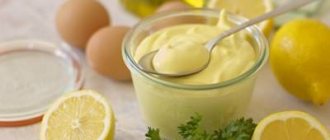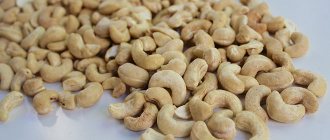03/19/2018 Category: Nutrition for a nursing mother Author: Nadezhda Sukonkina
Tea and all kinds of drinks made from rose hips have been popular since ancient times. People call him a good doctor. Against the backdrop of an extensive list of prohibited allergy-causing foods, a drink made from wild rose, as rose hips are also called, seems quite harmless for nursing mothers. Let's try to figure out whether it is safe during breastfeeding.
- Amazing properties of scarlet berry
Video: beneficial properties of rose hips
- The benefits and harms of rose hips during breastfeeding
- Introducing the infusion into the diet of a nursing mother: where to start and how to prepare the drink correctly
Wild rose infusion
Video: what you need to know before making a rosehip drink
Is it possible to take rose hips while breastfeeding?
This question is often asked by women after the birth of their baby. Many people know about its beneficial properties: it activates the body’s defenses and improves immunity. During the period of breastfeeding, it is especially important to increase the body’s ability to resist various ailments.

However, doctors are of the opinion that you can eat everything, but only in moderation. It is precisely because of the presence of useful substances in rose hips that it often serves as a raw material for the preparation of medicines not only in folk, but also in official medicine.
Did you know? The fruits of the described plant contain a large amount of vitamin C, as well as essential oils that can destroy bacteria and stop inflammatory processes.
In it you can find:
- carotene;
- riboflavin;
- vitamins of different groups;
- phytoncides;
- Sahara;
- minerals;
- essential oils;
- organic acids;
- tannins.
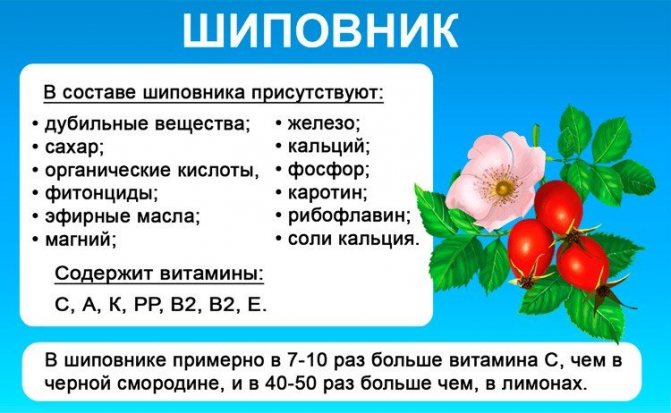
- Such a wide range of useful components helps to have the following effects on humans:
- antisclerotic;
- diuretic;
- restorative;
- regenerating;
- choleretic;
- tonic.
In addition, it is noted that taking a decoction based on these berries will help increase the amount of milk: the concentration of substances in it optimally correlates with the benefits. More concentrated substances can provoke allergic reactions and disruptions in the development of the baby’s growing body.
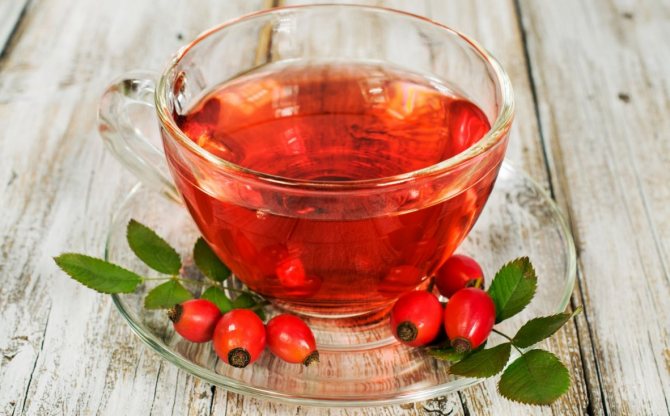
Recipes for decoctions useful for lactation
Now you can find many recipes for brewing dried rose hips. We have selected the most suitable recipes for rosehip decoctions that are useful for lactation:
- 100 gr. Rinse the rose hips thoroughly, chop them and place them in a thermos. Then pour 1 liter of hot water and leave for about 5 hours. Be sure to strain the infusion before drinking.
Interesting! For active lactation, you can use chamomile, dill, fennel and anise together with rose hips.
- Pour water over 2 tablespoons of crushed rosehip roots and boil for 10–15 minutes over low heat. After the broth has cooled, strain.
- For daily use, you can make compote or brew tea from rose hips: chop 2 berries and add to regular tea.
Advice! Rosehip oil is used for stretch marks during breastfeeding, dry skin, and fine wrinkles. They lubricate problem areas of the skin and mucous membranes.
You can find all the useful herbs and herbs in the FitoContinent online store at competitive prices.
Be healthy with FitoContinent!
Many of us have seen beautiful flowering rosehip bushes, which by autumn are covered with scarlet or orange fruits. Rosehip branches are covered with prickly thorns, hence its name.
It turns out that this relative of the garden rose is not only beautiful, but also useful. Its fruits contain vitamin C and carotene, as well as other vitamins and microelements important for humans. Therefore, the benefits of rose hips are undeniable. But nursing mothers carefully “scan” every product they eat – is it harmful to the baby? Is it possible to use rose hips while breastfeeding - let's find out.
What are the benefits of rose hips? Since ancient times, rose hips have been used to treat the digestive and urinary systems, blood vessels, gallbladder diseases and anemia. It is drunk when there is a general loss of strength, after a debilitating illness. Pharmacy rosehip syrup "Holosas" has a choleretic effect; it is prescribed after Botkin's disease, restoring liver function.
Rosehip has the following beneficial properties:
Fights pathogenic bacteria, Improves metabolism in the body, helping to fight extra pounds, Has an anti-inflammatory and healing effect, Normalizes blood pressure, Increases immunity to diseases, improves the functioning of the immune system. Has a general strengthening effect, Helps with bleeding and anemia.
Rosehip petals contain essential oil, flavonoids, tannins and sugars, leaves - catechin, saponin, phenolcarboxylic acid, seeds - vitamin E.
Dried rosehip retains all its beneficial qualities. It is brewed in winter and drunk as a healing drink that helps replenish the body with vitamins and microelements lost during the cold season. Rose hips must be dried in the air in the shade or in the oven at 80 degrees. Rose hips are well stored in paper or woven bags and do not lose their beneficial qualities for two years.
Does rosehip have any contraindications for breastfeeding? Rosehip tincture with alcohol should not be taken by hypertensive patients; it is recommended for hypotensive patients. Rosehip decoctions reduce blood pressure, so it is not safe for hypotensive patients to drink them. Rosehip has a large amount of ascorbic acid, so it should be drunk with great caution for those who are prone to gastritis or have peptic ulcers. A strong decoction of rose hips can harm your teeth; it is better to rinse your mouth after taking it. Teas with rose hips are contraindicated for people suffering from thrombophlebitis. Use rose hips with caution for diseases of the cardiovascular system. Rosehip root-based products slow down the production of bile, and their use can affect liver function. Those who suffer from constipation should not aggravate their troubles by taking a decoction of rosehip root. Rose hips can cause increased gas formation, so it is better to neutralize this effect by eating celery or dill. Dermatological problems also require careful use of rose hips.
Nursing mothers who have any of the listed ailments should take this into account when intending to drink a glass or two of rosehip decoction. If you do not have these diseases, rosehip in itself does not cause any harm during breastfeeding.
Rosehip - for children Rosehip tea is given to children as an immunostimulating and general tonic, protecting against colds. Rosehip syrup is given, calculating the amount based on the child’s weight. Water decoction – a glass a day.
Drinks with rose hips are undesirable for newborns, as they have a strong diuretic effect, washing away all the beneficial substances from the baby’s body. Rosehip may be an allergen, so a nursing mother needs to take this point into account when drinking the drink herself.
How to use rose hips while breastfeeding? There are some rules for brewing rose hips:
Before brewing, the rose hips are washed well. About 100 grams of rose hips are taken per liter of water. Most vitamins are contained in its pulp, so rose hips must be mashed or ground. The infusion and decoction are prepared in a sealed container. The broth is infused for about 5 hours. Before use, strain the rosehip decoction or infusion.
Rose hips can be used when preparing multi-ingredient drinks: with black currants, rowan berries or dried fruits. This drink will not only give you energy, but also help quench your thirst on a hot day.
Rosehip oil can be used as part of industrial cosmetic creams or as an independent remedy against stretch marks during pregnancy and breastfeeding, as a means of combating problem skin, protecting the epidermis from drying out and preventing aging. Rosehip oil helps regenerate the mucous membranes and skin, making the skin soft and smooth, without wrinkles.
As you can see, rose hips can be useful during breastfeeding, it is only important to observe the measure.
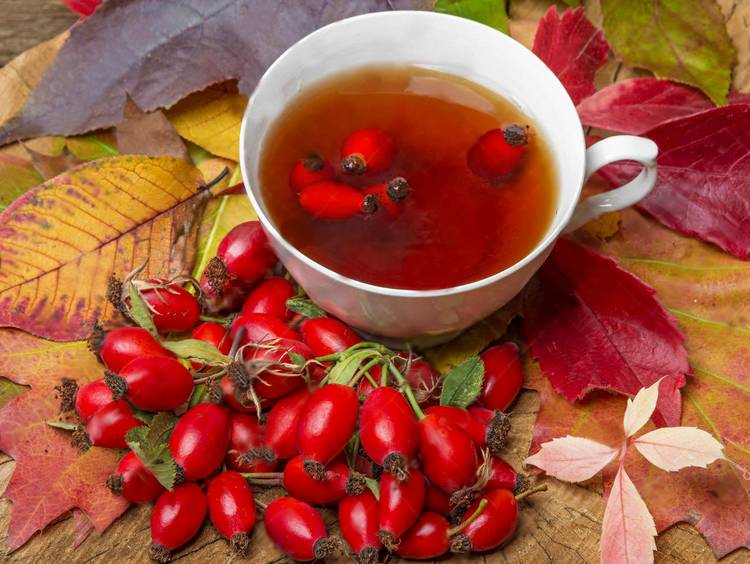
There is an opinion that expectant and nursing mothers are strictly forbidden to eat red berries during breastfeeding. However, rosehip is an exception to the rule. This berry is simply a champion in the amount of vitamin C - it contains 16 times more than black currants, lemons and oranges. Is it possible to take rosehip while breastfeeding a newborn?
Impact on the child
For a newborn whose only food is mother's milk, the use of the described product will have a positive effect if all recommendations are followed:
- Vitamin C will help boost your immunity and resist colds.
- Nutrients normalize the baby's metabolic process.
- Collecting minerals and trace elements will have a beneficial effect on the overall development of the baby.
- Folic and ascorbic acids will strengthen blood vessels.
- A balanced amount of components will help the internal organs and glands grow and function normally.
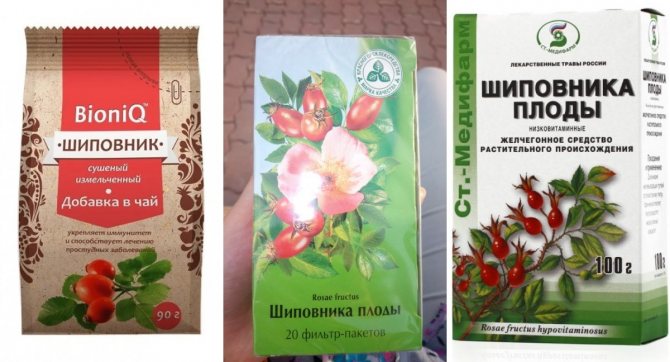
On the shelves of stores and pharmacies there are ready-made mixtures for making drinks, but you can make your own drink at home.
First month
You should not start using rose hips immediately after the maternity hospital - it is advisable to wait about a month. During this period, the mother gets used to the child and the world around her.
All this is already stressful for the baby, so pediatricians advise the mother to adhere to some dietary restrictions - this way, there will be no additional stress on the child’s body. A little later, mom will be able to add variety to her diet.
Important! The introduction of food into the diet of a nursing mother should be carried out gradually and in small doses. Otherwise, after feeding, you may notice the appearance of a rash, skin irritation or digestive system disorders in the child.
Second month
You may notice that the baby is already stronger and accustomed to the new environment. Now you can start trying something new. It is necessary to follow the rules for introducing new food. Some mothers keep a special food diary in which they write down everything they eat day by day.

This way they will be able to see the cause of a possible allergic reaction in the baby. Initially, you need to try 1 tsp. infusion or decoction of rose hips. Carefully monitor your child's reaction to the innovation. There is a point of view that it takes 3 days to get used to the product and the appearance of an allergic reaction.
If after this period everything is fine, then you can start introducing the next product. In a situation where some deviation occurs, it is worth postponing the appointment for 1–2 months.
Also read about the benefits of eating cranberries while breastfeeding.
Compotes allowed from the first months of GW
Breastfeeding, first of all, requires a woman to be completely confident in what she eats. This means that you need to take fresh fruits and berries, preferably from the garden or garden. Here is a list of recipes for healthy compotes.
Apple compote
The most useful and versatile product during this period is an apple. This fruit is not only healthy, but also delicious. This is what pediatricians allow to consume within 2 weeks after birth. Apple contains a large amount of iron, vitamin and fiber. Apple products help maintain normal digestion, make the skin more beautiful, reduce the risk of cardiovascular diseases, improve immunity, and also normalize blood sugar and cholesterol levels. Therefore, apple compote is the safest and healthiest when feeding.
Recipe
Take about a kilogram of fresh apples, preferably green ones. Since the red peel may contain allergens. Wash and peel them thoroughly.
After this, the apples need to be cut into slices and filled with 3.5 glasses of water. Then, add 1.5 tablespoons of sugar and cook everything for 12-15 minutes. All is ready.
Pear compote
A pear has approximately the same properties as an apple. Even though pears taste much sweeter than apples, contain less sugar and fewer calories, they improve blood circulation, breathing and digestion. But unlike an apple, a pear is not recommended for eating in its pure form due to the risk of allergies in the first months of feeding. Therefore, the best way is to prepare compote.
Recipe
Pears have a high sugar content and soft skin. This means that the pears (also about 1 kg) can simply be washed very thoroughly, cut and thrown into the pan. Afterwards everything is filled with 3.5 glasses of water, but you can add less sugar, one tablespoon. Cook everything for 15 minutes and strain.
Dried fruits compote
Dried fruits are unique products because after drying, dried fruits almost do not lose their beneficial properties. Plus, dried fruits can be mixed together, which will only be healthier.
Important!
Dried fruit compote is the only type of compote that can be drunk in unlimited quantities when feeding.
Dried fruits help a nursing mother’s body recover faster, normalize the functioning of digestion and other internal organs, and dried fruits are also a good preventive measure for intestinal diseases and breast diseases.
Recipe
Before cooking, dried fruits need to be washed and, preferably, steamed. It is better to take fruits that have been dried yourself; you should not take mixtures from bags, as they add dyes and preservatives. Then, dried fruits need to be dried and washed again. Place a pot of water on the fire and add half of the dried fruits to it. Cook for 25-30 minutes, then add sugar (3/4 cup per 200 grams of product) and the second part of dried fruits, cook for another 5 minutes.
Berry compote
Berry compote is useful for a nursing mother due to its high content of vitamin C. This element helps maintain the immunity and health of both the child and the mother. Currants, cherries and raspberries are best suited for this drink.
Recipe
First you need to prepare the berries (500 grams), they need to be washed and cleared of “sticks”. The berries are mixed with a liter of water and 10 tablespoons of sugar. After mixing, the berries are cooked for 10 minutes.
Apricot compote
These fruits are rich in large quantities of macroelements, including iron, cobalt, vitamins B and C.
Interesting!
Apricots help cope with a number of diseases, from heart disease (anemia) to obesity.
Recipe
Apricots (800 grams) should be divided into two parts, washed and pitted. Fill them with 2.5 liters of water and add 200 grams of sugar. Cook for 15 minutes over low heat.
The effect of rose hips on lactation
Those mothers who used rosehip-based drinks while breastfeeding reported an increase in milk supply. It is advisable to prepare an infusion at home. During heat treatment, a large amount of useful substances is lost.
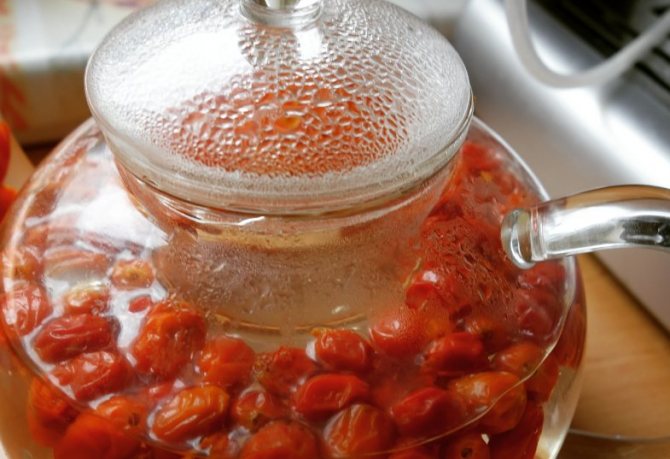
Proper brewing and consumption will help increase lactation.
Most often, enamel dishes or a thermos are used for cooking. With the help of such a simple drink, a mother can provide not only nutrition to her baby, but also protect herself and him from colds.
The plant is able to increase the production of female sex hormones, as well as drain fluid from tissues to the vessels of the mammary glands. It is this action that increases the amount of milk.
Composition and properties
The benefits and harms of rose hips are due to the content of a large amount of vitamins and mineral compounds.
| Name of valuable compound | Main action |
| Vitamin A | Improving the appearance of hair, dermis, visual functions. |
| PP | Stimulates the functioning of the cardiovascular, digestive system, liver, normalizes blood circulation. |
| B1 | Improving memory, appetite, stabilizing concentration, stimulating brain activity, slowing down the aging process, increasing tone. |
| E | Stabilization of hormonal balance, slowing down the aging process, normalizing the activity of the cardiovascular system. |
| B2 | Increasing the protective properties of the body, ensuring smoothness and elasticity of the skin, improving the functioning of the visual organ, normalizing the central nervous system, helping in stressful situations. |
| C | Strengthening immune properties, preventing diseases of viral and infectious origin, treating colds, improving mood, dilating blood vessels, increasing tone. |
| Ca (calcium) | Strengthening bones, nails, tooth enamel, ensuring normal blood clotting, lowering cholesterol levels. |
| Mn (manganese) | Removing toxic compounds from the body, increasing immune qualities, improving lactation. |
| K (potassium) | Saturation of cells with oxygen, stimulation of brain activity, normalization of blood pressure, strengthening of the muscular system. |
| Cu (copper) | Relieving spasms, pain, inflammatory processes, improving blood quality. |
| Mg (magnesium) | Strengthening the central nervous system, cardiovascular system, treatment of seizures, digestive disorders. |
| Zn (zinc) | Improving mood, memory, concentration, stabilizing the functioning of the genitourinary system. |
| Na (sodium) | Normalization of water-salt metabolism, stabilization of blood pressure and heart rate. |
| Fe (iron) | Normalization of metabolism, saturation of cells with oxygen, increasing hemoglobin levels, preventing the development of anemia. |
| P (phosphorus) | Strengthening bones, teeth, stimulating brain activity, improving memory, normalizing kidney function. |
Beneficial properties of rose hips for a nursing mother during breastfeeding:
- Relief of inflammatory processes.
- Strengthening the body's immune properties.
- Increased tone.
- Stimulation of breast milk production.
- Therapy and prevention of diseases of the kidneys and genitourinary system.
- Prevention of sclerosis.
- Removing harmful substances from the body.
- Therapy and protection against diseases of viral origin.
- Ensuring carbon metabolism.
We recommend reading: Butter during breastfeeding
In addition, the fruits of this plant improve brain function and are used to treat cystitis.
How to use it correctly
You need to start taking it with a small amount of the substance. The maximum amount of drink before feeding can be 150 ml. Initially, the minimum amount is 1 tsp, and only in the absence of side effects can the amount be increased.

This applies not only to the use of decoction, but also to tea or compote. If the mother likes the taste characteristics of such a drink and the child has no problems absorbing it, then you can drink such drinks daily. It is recommended to carry out receptions in the form of 1-2 courses every 3-4 weeks.
If you need to take rosehip syrup, then you should be more careful. This product is more concentrated. Initially, the dose should be about 0.5 tsp. per day, and gradually increase it to 100 ml.
Important! Remember that the benefits of taking herbal-based drugs may be less than the harm caused to the body of the mother and baby: this is due to a violation of the regime of use.
Contraindications
Quite often, the use of rose hips can be limited by prohibitions.
- It is contraindicated for people with:
- thrombophlebitis;
- hypotension;
- chronic constipation;
- dermatological diseases;
- stomach ulcer or exacerbation of gastritis.
If you have at least one of the points listed above, then your doctor should decide whether or not to drink wild rose fruit drinks while breastfeeding.

Neglecting contraindications can lead to exacerbation of a chronic condition and deterioration in general well-being.
Reviews
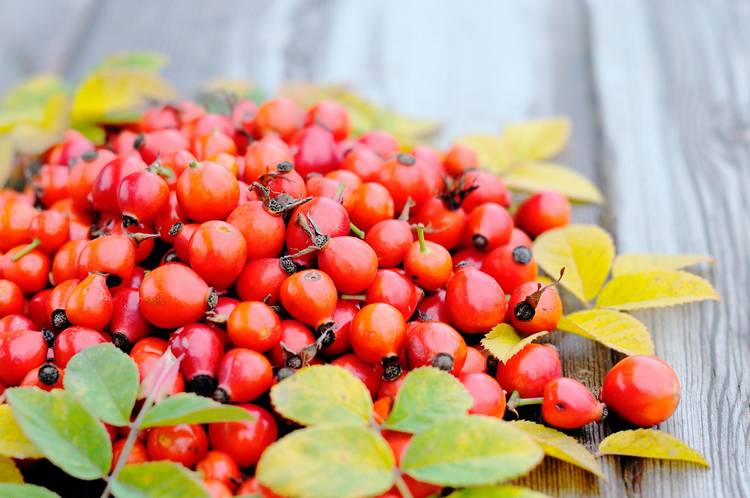
Marina, 25 years old
During lactation I caught a bad cold. Rose hip decoction helped me regain my strength. I fed the baby, although he was not even a month old. It's okay, he liked the milk.
Alena 19 years old
I drank rose hips during lactation in the winter and am glad that neither I nor my baby had a cold.
Recipes for cooking and taking rose hips
In addition to the wide variety of recipes, there are also requirements for preparation. Knowing them is necessary to obtain a quality product.
Find out also
Currants during breastfeeding
Here they are:
- During breastfeeding, it is recommended to use rose hips only in dried form, since fresh fruits can cause colic and allergic reactions in a newborn.
- Before preparing the drink, you need to sort out the berries and wash them thoroughly.
- It is advisable to prepare the raw materials yourself, since in this case you can be confident in the quality of the plant component.
Drinking plenty of warm fluids will help your milk flow. Drink the drink and wait: Allow 20-30 minutes to pass before feeding.
Decoction
Not only the above-ground parts of the plant, but also the underground parts can act as the main component.
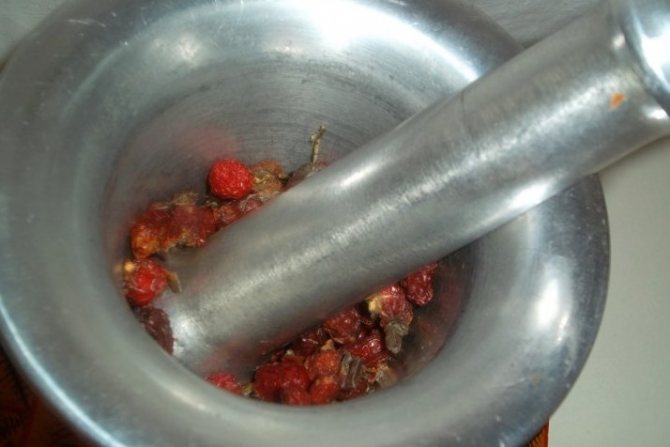
To prepare, take:
- 1–2 tbsp. l. crushed plant materials;
- 1 liter of water.
Place everything in an enamel bowl. Bring to a boil and heat over low heat for about 15 minutes. Cool the resulting broth and strain.
Tea
This is the easiest way to prepare a drink. For it, you will need to chop 1-2 berries and add them to the teapot with regular tea. Wait a little and you can use it. It is advisable to brew fresh raw materials each time. Since the concentration of the plant component is small, you can drink tea throughout the day, observing the measure.
We advise you to familiarize yourself with the beneficial properties of drinking raspberry tea.
Syrup
Syrup can be prepared from various parts of the plant. During the feeding period, it is better to give preference to the dry component.
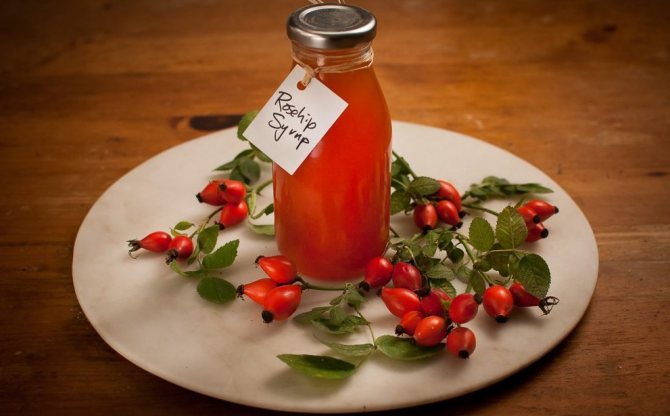
For this tool you will need:
- 200 g fruits;
- 1 liter of water;
- 700 g sugar.
Preparation:
- Rinse the berries in warm water and place in a saucepan.
- Pour boiling water over it and close the lid, simmer for 25 minutes.
- Turn off the heat and do not open the container - the berries should brew well, 3-4 hours will be enough for this.
- Separate the pulp from the liquid, add sugar.
- Boil the mixture until thickened: this often takes 15–20 minutes.
Did you know? There are about 400 species and 50,000 varieties of rose hips in the world.
Compote
To get compote, you can use both whole and ground berries.
For him take:
- 2 liters of water;
- a handful of fruits.
- Boil the combined ingredients over low or medium heat.
- To add flavor, you can add a little sugar and a pinch of salt, often adding a slice of lemon.
- Boil the drink for 10–15 minutes.
- Let it brew for a while; you can also add your favorite dried fruits to the drink.
Video: Rosehip compote

Infusion
To prepare this remedy, you need:
- 4–5 tbsp. l. raw materials;
- 1 liter of water.
- Grind the plant component.
- Place everything in a thermos and fill it with boiling water. Close tightly and leave for 10–12 hours.
- Strain the finished infusion. Add some sugar.
- The second sweetener option is honey. If the baby does not have an allergic reaction, you can use it.
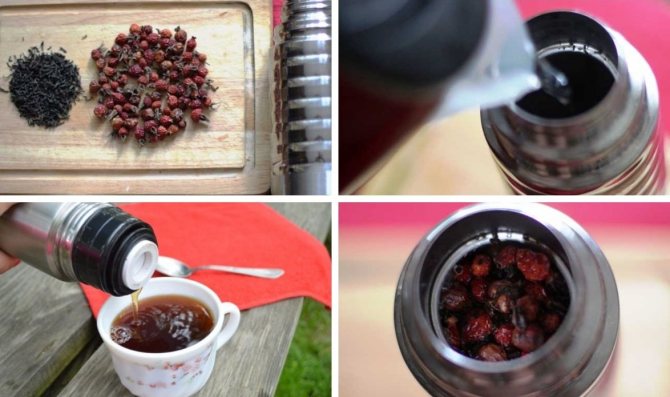
To summarize all of the above, we note that the considered plant can be introduced into the diet of a nursing mother only 2 months after the birth of the baby. This is a product with moderate allergic activity, so it is introduced gradually. The mother is directly related to the baby, as she breastfeeds him - accordingly, you should first consult with your doctor regarding the advisability of using a drink based on wild rose.
In what form can it be used?
Rose hips are not used fresh for breastfeeding. Fresh ones cause allergic reactions and colic in infants. Before eating, carefully sort and wash the fruits. To obtain a rich drink, it is recommended to cut the rose hips before brewing.
Syrup
The syrup is consumed during meals, added to warm tea. But for breastfeeding, the drug is taken in consultation with a doctor. Not recommended for use with drugs containing a high content of ascorbic acid.
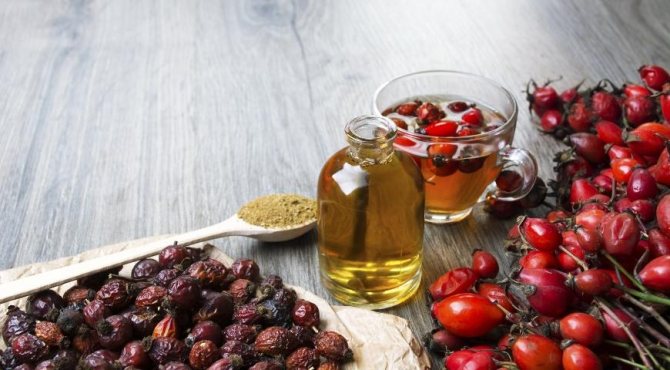
Infusion
Grind the dried fruits, pour 45-50 g into a thermos, pour a liter of boiling liquid. You need to insist for half a day. Strain before consumption.
Tea
It is recommended to drink tea during lactation in large quantities. Add 2-3 crushed fruits to any brewed tea.
Compote
When boiling compote, it is recommended to add several crushed rose hips to fruits or berries.

Decoction
You can also prepare a decoction with rose hips. To do this, you need to place 50-60 g of chopped rose hips in a container, add a liter of water, boil and boil for a quarter of an hour. When cool, strain.
Kissel
For lovers of viscous drinks, you can prepare jelly. To do this, you need to dilute 5-7 g of starch in 30 ml of cold water, add to the hot, strained broth and boil.
Petal jam
An unusual dish. Grind 300 g of petals in a blender. Prepare sugar syrup from 120 g sugar and 50 ml water. Add the petals, boil for a quarter of an hour, pour in lemon juice, and boil.
